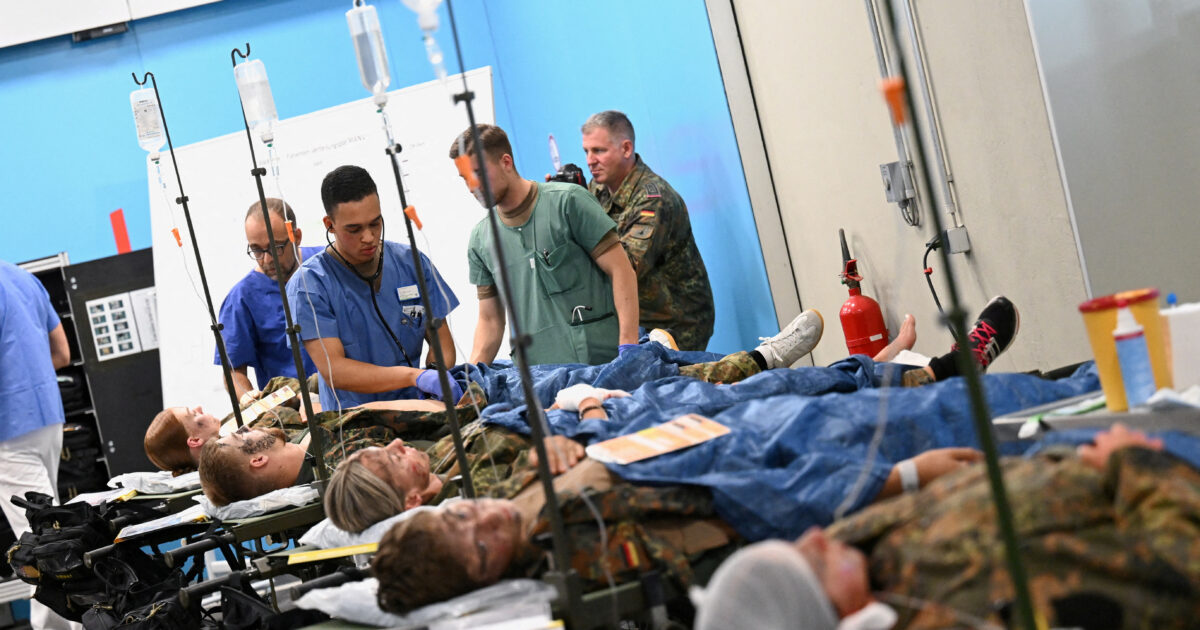On alert must be the Germany By 2029, the year in which NATO and Berlin consider that the Russia could attack another NATO country.
This is a possibility that officials in Germany repeat at every opportunity, intensifying the wider preparations and emergency plans in the country, despite Russia’s assurances to the contrary.
According to an interview with General and Archimandrite Ralph Hoffman at the Reuters agency, which relay German media, in the event of a war with Russia, Germany should be able to treat it. ‘Realistically almost 1000 injured soldiers per day’. According to Hoffman, “the nature of war has changed dramatically in Ukraine”. As he points out, most injuries arise after drones attacks.
More and more German experts also consider the role of unmanned aircraft in the coming years in conflict, using artificial intelligence and intelligence and precision strikes to more goals and longer distances According to Deutsche Welle.
According to the German Armed Forces, the transfer of injuries should be done in a future war scenario quickly and with flexibility, even with trains or buses. In Ukraine, trains are already playing a similar role. Ralph Hoffman also estimates that there should be at least 15,000 beds available in German hospitals in the theoretical scenario of a war.
Many hospitals are not ready
At the same time a recent survey of the German NDR Public Network’s Panorama broadcast reveals that Many German hospitals are not yet adequately prepared for the hypothetical war scenario, which until recently was considered “unthinkable”. According to the research, in many hospitals it is not yet clear “what role they could play in the case of a defensive war”.
A hospital unit from Northern Germany, which does not want to release its data, tells the NDR that it has appealed to the government to establish “national guidelines” as to which hospitals should be prepared in the event of an attack on NATO or the case.
According to the research, there are no such instructions for the time being. Another important finding of the research is that few hospitals have rooms and beds in underground, thus providing security in case of attack while Only 20% of the hospitals asked are planning to upgrade their building infrastructure in the coming years. More worrying is that the water breaks scenario has not been taken into account, while 41% of hospitals could not clearly answer the question “for how long the water reserves would last”.
As the report points out, large hospitals in Germany are required to be able to meet their needs for 72 hours. However 18% of hospitals could not operate without electricity for more than a week.
